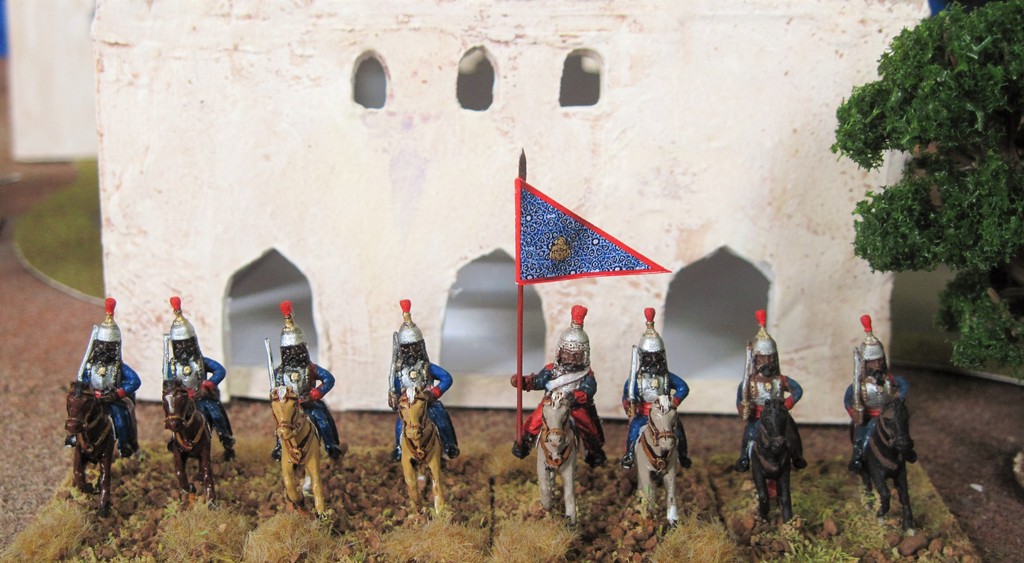Discover the legendary dark grey horse Laili, adored by Ranjit Singh, known for its beauty, grace, and the fascinating journey through 19th-century Punjab.
ADVENTURES OF AN OFFICER IN THE PUNJAB (2 vols.) by Major H. M. L. Lawrence, under the pseudonym of Bellasis, published in AD 1846 by Henry Colburn, London, and reprinted in 1970 by the Languages Department, Punjab, Patiala. The book which is a rambling account, half fact half fiction, of the author`s adventures, provides information about the rise of the Sikhs and about the person and government of Maharaja Ranjit Singh. This is "a dose of history, which the reader may read or not, as he pleases" (p. 236), mixed with scandal and bazaar gossip.
AKHBAR-I-DARBAR-I-MAHARAJA RANJIT SINGH, also called Akhbari Deorhi Sardar Ranjit Singh Bahadur, is a set of Persian manuscripts comprising 193 loose sheets of unequal size and containing, as the title indicates, news of the court of Maharaja Ranjit Singh (1780-1839). These sheets are believed to be newsletters sent from the Punjab for the Peshwa Daftar at Poona (now Pune). The collection was first discovered in 1932-33 by Dr Muhammad Nazim, an officer of the Archaeological Survey of India, in the Alienation Branch of the Divisional Commissioner\'s office at Poona.
Explore the life of Justice Man Singh, a key legal figure in Punjab, known for his contributions to Sikh associations and legal practice.
Explore the legacy of Amir Singh Sandhanvalia, a key figure in the Sikh Empire, known for his estates and military campaigns under Maharaja Ranjit Singh.
Discover Dr. Murray's journey to Lahore to treat Maharaja Ranjit Singh. Explore his engaging despatches revealing court splendor and military insights.
CHET SINGH BAJVA (d. 1839), Maharaja Kharak Singh`s distant relation and old tutor who wielded considerable influence at the Sikh court. The Dogra minister, Dhian Singh, looked upon Chet Singh as a potential rival to his position. The latter aligned himself with the Bhais and the Misrs at the court and sought the support of General Ventura and other Feringhee officers in open rivalry with the Dogra faction. The Dogras, on the other hand, won over Kanvar Nau Nihal Singh, the heir apparent, to their side.
COURT, CAROLINE FEZLI AZAMJOO (1821-1869), born as Fezli Azamjoo in Kashmir on 13 June 1821, married Claude Auguste Court, a general in the Sikh army, by 1836. They had three children by the time they left the Punjab in 1843. On 25 June 1844, Fezli and her children were baptized at Marseilles, and she was on the same day religiously married to General Court by the Bishop in the Cathedrale of Marseilles. A fourth child was born in Marseilles in 1845. Little else is known about Fezli Azamjoo`s life at Marseilles.
Explore the life of Pohlo Mall, a goldsmith and attorney in Amritsar, who heroically campaigned to restore Maharaja Duleep Singh's throne.





